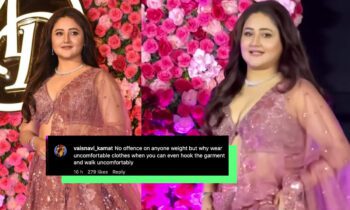The Sabarimala Row Raises An Important Question About Normalising Menstruation!

In 2015, poet and artist Rupi Kaur posted a picture of herself in period blood-stained pyjamas, laying on a blood-stained bed sheet, portraying a very real side of menstruation, on Instagram. The social networking app did not take it well, however, and the picture was taken down for some time. This repulsion at the sight of period blood has repeated itself with Instagram yogis, and photographers, who in the spirit of #FreeBleeding, have posted images wearing blood-stained clothing.
The reason for such visuals is simple: It is to normalise menstruation.
Menstruation has been considered impure and dirty, and women on their period have, for a long time, been treated with disgust. Many places in our country still follow archaic practices like isolating a woman when she is on her period – she is not allowed in the kitchen, not allowed to eat sitting with other people, not allowed to enter a temple, so on and so forth. As if her reproductive cycle will corrupt everything she comes in the vicinity of. This shame around menstruation has led to many problems beyond social isolation during four to five days of the month. It contributes to unhygienic menstrual care. It contributes to the lack of awareness and conversation around reproductive health, and as a result, diseases that could otherwise be avoided.
The recent Sabarimala row is testament to the social and personal costs that women pay, thanks to this misinformed secretiveness around menstruation. The temple authorities stated that women under the age of 50 would not be allowed in the premises because of menstruation. Rightfully, protests ensued. The matter was taken to the courts, and the Supreme Court ruled against it.
Breaking the taboo around menstruation is imperative, and the SC verdict in this matter is a step forward. That said, when it comes to the measures we take towards abolishing such age-old practices of segregation, it becomes important to ask, how much is too much.
One activist threatened to carry blood-soaked sanitary napkins into the temple. In light of this, Union Textiles Minister Smriti Irani allegedly remarked, “Would you take blood-soaked sanitary napkins into a friend’s home?” Her remark created quite an uproar. But, if you pause to think about it, it isn’t that out of line.
Menstruation is normal, yes. It is a process by which our body eliminates waste – unfertilised eggs, and uterine lining. Just like urine and faeces. The difference is that this elimination process happens only for women. But, no matter how you may like to glorify it, it is, after all, elimination. You wouldn’t get your period if the said eggs were fertilised and used. If you don’t appreciate this analogy, then consider it like ear wax, or, heck, even overgrown nails. What I mean to say is, period blood is something our body doesn’t need and is shedding. We have social norms around how to properly dispose of bodily waste, and these norms are not limited only to humans. While there is nothing dirty about the process of menstruation, menstrual blood is bodily waste that warrants proper disposal. In this light, how much sense does it make to break the taboo around menstruation by way of visuals? Would we threaten to carry other waste of the body to a temple?
Smriti Irani also allegedly stated that she is not against anybody praying, but she is against people desecrating. It is at least worth exploring if certain methods of spreading awareness, that are currently being utilised, may be disrespectful to some? Now, you may say that these methods are justified because the disgust around menstruation is reflective of our overall discomfort around anything feminine; that it’s a gender issue. Fair enough. But, why, then, is it that we cringe at unsolicited dick pics too? It’s not because we don’t like the male organ, or because we don’t desire it, or because we think the organ in and of itself is disgusting. It’s because it is thrust upon us when we don’t want it. If the same man who sends a dick pic were to maybe take us out on a date, and respectfully make his move, we probably would not resist. Because it is respectful.
Point is, yes, women and men need to stop looking at menstruation as something disgusting and horrible. And yes, we need to fight for it. We need to do what needs to be done to shift the perception. But, in pursuit of our cause, are we going too far when we use imagery and rhetoric, and inadvertently losing the battle?

















